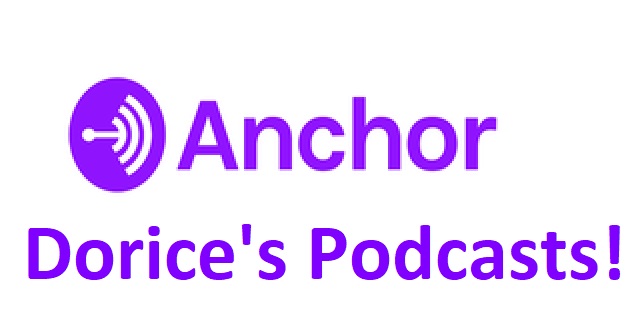 Last week I talked about Judaism as a buyer’s market. I received several comments! Let me share one of the responses from a dear friend of mine:
Last week I talked about Judaism as a buyer’s market. I received several comments! Let me share one of the responses from a dear friend of mine:
“Dorice, Great blog but you have it backwards. Judaism is the Seller and for what we paid (pay, and are going to pay) it isn’t cheap (thus a Seller’s Market)…Let me see what DID we pay for Judaism?… Let’s start with the Jewish Wedding, then hundreds (thousands?) of Shabbat dinners and holiday meals, Shul memberships and holiday fees, private school tuition, camp fees (many), Bat Mitzvah, Bar Mitzvah, Israel trips (many), Israel gap years (2), Israel university, Tzedakah to Jewish causes…. now what am I forgetting? Oh yeah, there was a bris in there 23 years ago...”
My friend is right about all the expenses he describes. Acting Jewishly, fulfilling aspects of Jewish life, can cost, and sometimes a lot of money. But what I am talking about is Judaism, not necessarily acting Jewish. Let me explain. It seems to me that today people pick and choose their Jewish identity a-la cart, each taking what they want from the treasure box entitled Judaism. The buyer (each of us) has the power to determine the extent of their involvement and what they are choosing from this box. When I looked at this issue from the framework I provide in my upcoming book, Moments of the Heart, I referred to the “First Chamber”: the relationship that we—each one of us (American and Israeli Jews)—have with Judaism. I suggested that we have to come to terms with what we choose to call and define as Judaism. Hence my list of questions and reflections, named “Your Personal Lev Moment,” which I offered in my last blog entry.
Now, this blog post continues the exploration of the relationship between the Jewish nation and the diaspora through the Second Chamber, the relationships we have with others. In my book, I refer to the relationship that one has with their spouse, their children, their boss, their colleagues, their parents. Here however, I will refer to the relationship between Israeli Jews and American Jews. Once we are good with who we are, and we have established our value system, with regards to Judaism, as we did through chamber one, (not that we have to be perfect by any means), the relationship with the other can be nurtured and solidified. It has a stable ground from which to grow.
And now we come to the “Seller’s market.” This Blog’s name. How do we “sell” who we are to others? How do we “sell” our Jewishness, our adherence to our values, our commitment and connection, our love and support of the other, and how does the other side “buy’ it from us?
When it comes to the American Jews and Israeli Jews, the tapestry of this relationship can be complex. We can either fail (if one side is blaming the other because of outcomes they disagree with that causes tension, or we can flourish (if we hold each other up and support each other’s mission).
Just like any relationship, this relationship has its red lines. In a recent workshop that I attended, I spoke my mind (which is completely within my personality trait). I commented, “We all want to have a healthy relationship of connection between these two nations that together makes up the Jewish people as a whole. Are there redlines within this relationship? Is there a time where we say, ‘I am not willing to negotiate or be present under these conditions?’ I know that for me, the safety and security of the State of Israel is of the highest priority. Anything that in its essence jeopardizes this physical safety is for me outside of the relationship building.” People came to me following the talk, including the speakers, and acknowledged that what I said was valid. Do you agree?
The word for friend in Hebrew is Chaver, חבר coming from the root word to connect, לחבר, L’chaber. So the idea of friendship lies in our connecting with a person. In the morning blessing we say, “buy yourself a friend.” What does that mean? How can we buy a friend? The Hebrew language is offering an insight — by connecting to and with a person, we create a bond, we create friendship, and therefore we create a relationship. We don’t “buy” it in the regular sense of the word as purchasing, but rather as gaining something that is treasured, that is worthy!
Apply these insights to the second chamber concept. How do you connect between friends? How do you buy a friend? And, moreover, keep them? In a recent Pew Survey of American Jews, 43% agreed that caring about Israel is an essential part of what being Jewish mean. Do you agree? What do you believe is essential for being Jewish?
Your Personal Lev Moment- each group should ask themselves:
- How is “my” Jewish identity relating to “you,” and what do we have in common?
- What differentiates us from one another? How can we respect these differences
- How am I connecting to you? Is it through cultural Judaism? A religious or spiritual experience?
- The shared word between American Jew and Israeli Jew is the word Jew. Is there such a concept as a “good Jew?” What does it mean?
- Have you visited Israel? What was your favorite place to visit? Why?
- Do you know any Israelis? What kind of conversations do you have? Same question for Israelis—how many Americans do you connect with? How does each one of you show you care about the other?
- When you hear of a tragedy, such as a terrorist attack, what is your gut reaction? Do you feel it is an attack on your family?
- Notice when you are being judgmental about the other. Why?
- What does autonomy mean to you? How do you respect it when it comes to the other?
- Do you know of a “twin city” exchange between Israel and your home town? Can you get involved in it?
- In Order to foster a sense of Peoplehood among American Jews and Israeli Jews, would you invest into bringing Israeli teens to the United States? Do you have a story to share?
- Consider having a shared meal with American Jews and Israeli Jews. Have a conversation of what can each learn from the other.
A friend of mine shared with me her story of the Tri-focal glasses. When you first put it on, it feels weird, even a bit confusing and your head may be spinning. You may even get a headache! When you learn how to shift your eyes up and down and how it can work best for you, the discomfort is gone. This is how I think a beginning relationship between American Jews and Israeli Jews can be. With effort put up by both sides, a clearer vision is a promise!
To be continued….


Good morning Dorice,
Thoughtful blog….. but most people have no way to connect with Israelis – I say plural because one person’s view is just one person’s view. Meeting with a group provides a variety of thoughts on any topic. Our Israel 360 might want to host a group to share ideas. Think about that. There can’t be a dialogue without that. American Jews are NOT up on all of the facts and history of what happens in Israel. And are American Jews really interested? I know many people who haven’t been to Israel or who don’t feel a connection. When I go to Israel and meet with friends of Aliza and Todd’s mostly they don’t want to talk about politics there. Which I find puzzling.
Our Israel 360 programs only get 30-40 people max. That is telling. What is the J doing to engage the topic of Israel? What is federation doing? (Besides the trip). Are they having many meetings taking about different aspects of Israel before the trip? What are the congregations doing? When Rabbi Stampfer was an acting rabbi and he talked of Israel – I would hear people say he talks to much about Israel. I think American Jews are apathetic in many ways. Engaging American Jews is difficult. Our Israeli art show drew very few people ! Shabbat Shalom
Hi Laurie, thank you so much for your thoughtful answer! I know, no one wants to talk about politics! On both sides. I am hoping that the set of blogs I am creating will be one the foundation of a webinar and workshop involving both groups. I also think that doing it from a synagogue does not draw the interest of israelis, right or wrong- that’s how they perceive it. I hope that the federation trip will be accompanied with preparation ! I do know that the Federation CRC is working on Israel advocacy!
I would love to invite you to the pilot webinar I am planning to do in March! Yes?